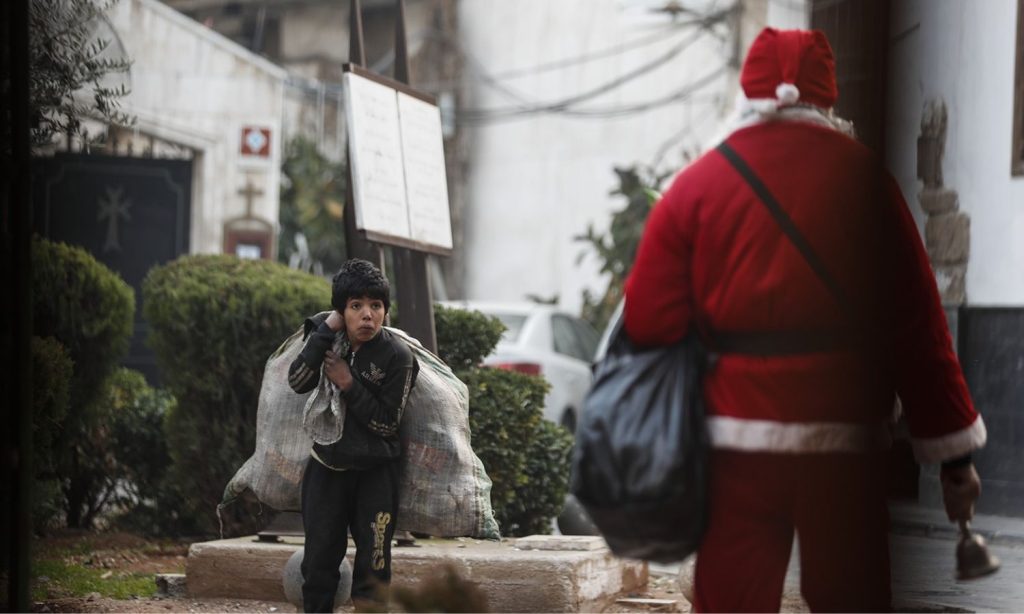Among the rubbish bins in rural Damascus, the 24-year-old Rania pulls a large cart with an empty bag attached to it to start wandering in search of recyclable waste.
It is a hard job that Rania (pseudonym for security reasons) usually starts after dropping her four girls off to school every day.
Rania was forced to work as a waste collector after her husband was arrested to become the sole breadwinner for her daughters, without any source of income or skill through which she could earn money to secure the basic needs of her family.
Exploitation, limited income
“After we lost our home due to the bombing, my daughters and I moved to an uninhabitable room, and the owner agreed to pay the rent for it in installments,” Rania told Enab Baladi.
The young woman was able to secure the rent during the last period by collecting recyclable waste, but the high prices and her exposure to exploitation made her unable to pay the rent.
This prompted the owner of the room to evict her, and today she is forced to stay in a relative’s house temporarily.
“If the price does not satisfy you, you have to find someone else to buy from you,” said Abu Omar, who buys what Rania collects, taking advantage of her great need for money to manipulate the price of materials to his liking.
On the other hand, Abdul Salam, 28, can secure a better income from collecting recyclable waste because he owns a motorcycle that allows him to collect larger quantities, he told Enab Baladi.
Despite his fear of the health harms of his work in collecting waste in the countryside of Daraa, Abdul Salam believes that it is better than day labor, as its wages will not secure the basic needs of his family of five, while his current job provides what his family needs at a minimum.
He added that setting the prices of recyclable waste and the income that workers in the sector can earn depends on the exploitation of merchants.
Society is ‘ruthless’
Rania repeatedly thinks about leaving her job for fear of society’s view that might reflect on her daughters, despite working with a mask for fear of revealing her identity.
“Society is ruthless, no one has taken the initiative to help me despite my great need for that, but I am criticized because of my work,” says Rania.
While Abdul Salam works without hiding his identity, he is not shy about telling his relatives and friends about his work.
The young man considers his work a “source of livelihood” that prevents him from seeking help, waiting for assistance from organizations, and working for an unjust wage.
For its part, Damascus governorate council promoted its efforts during last November and December to limit the phenomenon of waste collection in the city.
The governorate vowed to confiscate the tools of workers in this profession and take legal action against them.
The decision was criticized by some local pages and social media pioneers, as people digging through waste containers are forced to search for food for their day.
This came after a local news website published a report about accusations by a member of the Damascus governorate to an employee of the Cleanliness Directorate that he supervises people who collect recyclable waste.
On 10 March, Muthanna Ghanem, director of the environment department in Damascus countryside, told the local Athr Press website that poverty has nothing to do with the issue, considering that the profit made by workers in garbage collection is what drives them to work.
According to Ghanem, the fine for working in this unlicensed profession is 3,000 SYP (about 0.47 USD).

